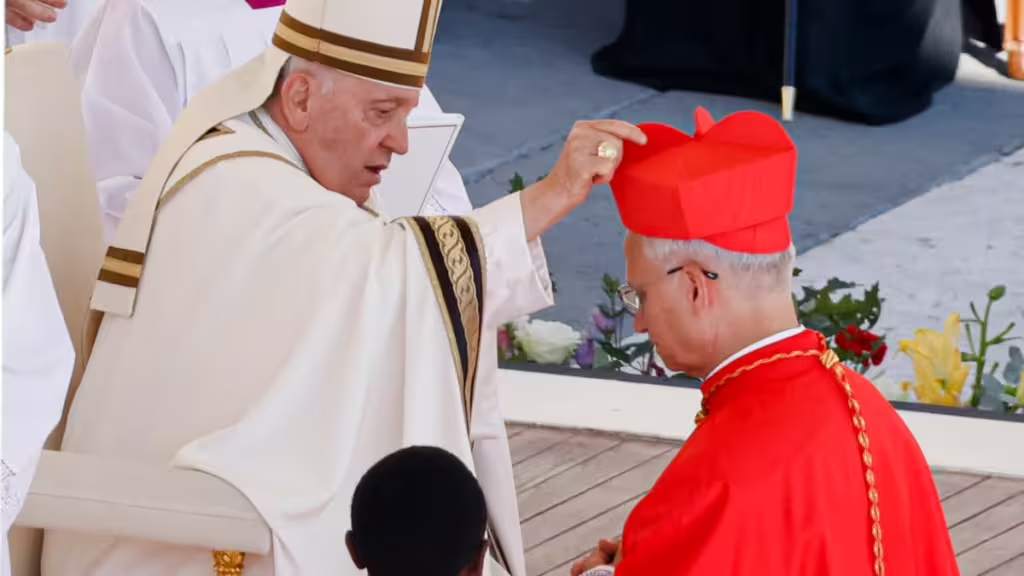Pope Francis announced on Sunday his intention to appoint 21 new cardinals from diverse countries worldwide, a significant decision aimed at reshaping the future leadership of the Catholic Church. This announcement was made during his weekly prayer gathering in St. Peter’s Square, where he shared details about the upcoming ceremony, known as a consistory, scheduled for December 8. This will mark the 10th consistory he has called since his election 11 years ago as the first pope from Latin America.
The new cardinals come from an impressive range of countries, including Argentina, Brazil, Chile, Peru, Italy, Britain, Serbia, Japan, Indonesia, Canada, Ivory Coast, and Algeria. Among these appointees, 20 are under the age of 80, qualifying them to vote in the conclave that will eventually elect the next pope following Francis’s death or resignation. Notably, the only member of the new cohort exceeding this age limit is a 99-year-old Italian archbishop, whose appointment is a gesture of gratitude for his extensive service to the Church. Conversely, Mykola Bychok from the Ukrainian Greek Catholic Church stands out as the youngest at just 44 years old.
By early next year, the number of cardinal electors will reach 140, with nearly 80% selected by Pope Francis himself. This trend significantly enhances the likelihood that his successor will align with Francis’s vision of a more progressive and inclusive Church. Although church law limits the number of elector cardinals to 120, recent popes have frequently exceeded this cap. Additionally, 14 cardinals from the current cohort will turn 80 during 2025, further shaping the conclave dynamics.
Pope Francis has deliberately prioritized the appointment of cardinal electors from regions far removed from Rome, signaling a departure from the historical focus on European nations. All cardinals, regardless of age, are permitted to participate in pre-conclave meetings, known as General Congregations, where they can express their opinions on the characteristics and qualities they believe the younger cardinals should seek in the next pope. Cardinals rank just below the pope in the Church hierarchy and act as his closest advisors, retaining considerable influence and power within the Church, often referred to as the “princes of the Church.” However, Francis has urged them to eschew a lifestyle of royalty and instead foster a closer connection to the impoverished and marginalized.
This strategic appointment of new cardinals reflects Pope Francis’s ongoing efforts to shape the Church’s future and ensure that it remains aligned with his vision, focusing on inclusivity and outreach to those on the margins of society.



